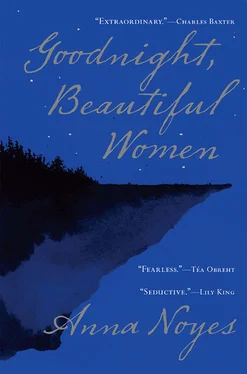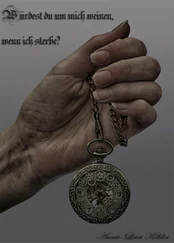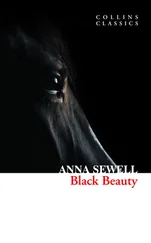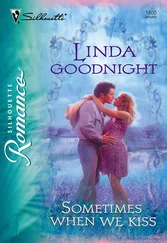These were the pastimes of that fall — the oil, and watching a show about brides-to-be trying on wedding dresses while Bruce worked at a wine shop where they’d get him drunk sampling wines and then he’d drive the hour back to my town weaving. The couple of times I got up the courage to confront him about being drunk he hadn’t actually been drinking. I wasn’t any good at telling the difference between Bruce sober and not, and he’d seemed drunk to me.
For exercise and sunlight I dressed each afternoon in a pair of men’s jeans that I imagined a Maine farming woman might wear, slathered my erupting skin with makeup, and braided my hair so I could walk to the end of the driveway and collect the Rite Aid flyers from our mailbox.
When I envisioned my wedding I saw my bare feet, walking up a petal-strewn path. I would carry a bouquet of bluebells. The weekend after we arrived in Maine Bruce planned a surprise for my birthday, a surprise he told my family about and described to me as “an elephant,” and I felt sure and sharp in my chest that the surprise was a proposal. We drove four hours, my mouth dry imagining how the proposal might play out, and then he untied my blindfold in the parking lot of the University of Maine at Fort Kent, where an upright bassist was to perform all six of the Bach cello suites.
I had mentioned to Bruce that I liked the cello suites, which I did, but I’d only heard them once and basically I just liked the cello more than other instruments, like trumpets or flutes, which I didn’t like at all. The second surprise was that the bassist, who was playing by memory, forgot his place and had to search his mind for the next notes in front of the few of us gathered in the tiny auditorium, which during the day was a science classroom, as evidenced by the periodic table of elements above the stage. The bassist sent the professor who introduced him running backstage while he stood clutching his bass, and once the music stand was set up and the book of sheet music propped open precariously before him he closed his eyes and resumed playing for one lovely, sonorous second before the score flipped of its own accord to the wrong page. The audience knew this had happened but the bassist did not. When he opened his eyes there was nothing for him to do but stop playing to hunt for the correct, lost page, while we sat watching. It went on like this all the way through 136 minutes of cello suites, and afterward he struggled the bass offstage. Bruce and I went out to Applebee’s, where I ordered a burger even though I’d been a vegetarian for years and we talked about the lesser mistakes the bassist had made, which even I, without knowing the Bach cello suites or classical music, found obvious — whole swaths of music were missing, or improperly timed.
* * *
Back then I woke up every morning and looked out the window at the empty driveway of our subdivision and then rubbed the soles of my feet on the soft deer hide my parents had gifted us, receiving from it the kind of comfort one might get patting a dog. With each passing day I wondered when I would feel returned to myself. The days got dark earlier, and I got out of bed later, stopped eating meals when Bruce wasn’t around, and often changed from my pajamas at dusk, knowing he would be back soon. Then in early October a red Jeep went cruising by. I remembered a similar red Jeep from when I was little and living across town in the big yellow house that I had started referring to as my parents’ house instead of as my home, because now my home was meant to be the prefab Cape house I shared with Bruce. Whenever I called my parents’ house my home Bruce corrected me.
A summer girl named Nancy had driven the red Jeep twenty years before, which caused a stir in our two-hundred-person town where nobody drove a red car with the top down, and mostly nobody was young. I remembered her as prim and polite, her hair wet from a fresh permanent that smelled like fruit and poison, helping me onto the back of a fire truck at the Fourth of July lobster bake. I was six years old. When she graduated college, her sorority picture was printed in the summer paper — she wore a black velvet cloth draped over her shoulders and white pearls. Her tiny hands were cupped beneath her chin. She looked like a president’s wife.
The story of Nancy’s accident made its way back to our town in small portions. She lived in New York City after college, working as a consultant and carrying a leather Coach briefcase. Her muggers hit her over the back of the head. She was found barefoot — the muggers had stolen her shoes — and unconscious, and stayed in a coma for six days. When she woke up she was different. She spat the hospital Jell-O across the room. She sat for hours on the roof of her building smoking. Work was impossible — she often trailed off midsentence, her ears rang incessantly. She developed vertigo and during these spells would sit in the middle of the sidewalk, or on the shoulder of the street. Twice the police picked her up for public intoxication. Her friends told her she was more fun than she had been before. She slept during the day, and walked New York neighborhoods at night, wearing a man’s fedora, drinking from a flask. When people trailed too close behind her, she’d yell at them, in the voice of a tiny woman who was about to transform into a hulk, “Get away,” as though they were the ones that needed protection from her. She went to Coney Island and rode the log flume over and over, without her protective helmet. She came out as a lesbian, and wore a shark tooth necklace she’d bought on vacation in Costa Rica every day. Her mom stayed with her in New York for three months, setting up a prayer shrine at the kitchen table, before convincing Nancy to move back to California with her, where she spent her disability money on Ring Pops, nitrous oxide canisters, three-piece suits, and a guinea pig named Petal. Some days all she could do was lie in bed, letting the guinea pig root through her hair, trying to make a nest.
She was thirty-five. She could feed herself and dress herself and she wanted to live unsupervised and not be treated like a child. She took her guinea pig and the red Jeep — which at this point had a rusted-out undercarriage and a sunroof jammed open by one-eighth of an inch, enough to let in rain — and returned to the vacation house alone. Her parents owned a gazebo by the water with glass windows looking out in all watery directions and seagulls squawking and shitting on the roof, as they would on the roof of a lobster boat. This is where Nancy slept, on a futon on the floor, surrounded by the unearthed vestiges of her childhood — the oversized rabbit pillow with long white hair that shed all over her pajamas, the pilled Ninja Turtles comforter, the lava lamp, the porcelain kittens with blue jewels for eyes — objects she had long ago packed away into the basement for the day her children might want them.
Most of this I would learn later. On that day in October all I saw was the Jeep and the flash of her hair, which had been brown and was now bleach blonde, nearly white. I spent an hour in the bathroom with the oils and a new kind of powder makeup, applying samples, until I had tried on Beige Neutral and Sandy Fair and Sun-kissed Medium, writing notes about each on Post-its that I stuck to the bathroom mirror. Then I thought I might try to clean the toilet, but I had forgotten to buy a toilet brush. I dug through my office, which was simply a room where we hid our unpacked boxes, until I found a penny whistle that Bruce had given me as a stocking stuffer last Christmas. I wrapped the whistle in a plastic bag and used it to push a tissue around the toilet basin. As I did this I played the rehearsal track for the hundred-person choral group I had joined in an effort to make new friends. We met once a week in a church basement three towns over to sing songs in Old English that I memorized by ear. The rehearsal track was sung by the choral director, a spunky soprano with bracelets that clattered on her wrists, but she recorded the contralto part with her pitch artificially deepened and slowed. I belted out the one line I had memorized because the lyrics sounded like, “Lay out your Levi’s, lustily,” and pictured someone who looked good in Levi’s taking them off and folding them carefully on my bed. The voice on the recording sounded like a demon being melted by sunshine.
Читать дальше












